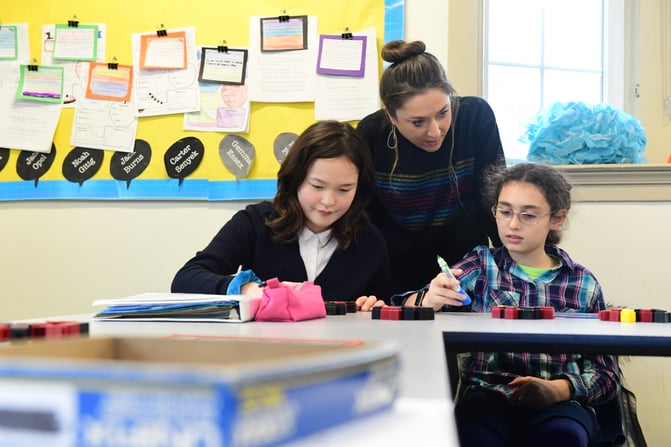Dyscalculia is a learning difference that makes math challenging to understand. This impairment can extend beyond the comprehension of math and lead to difficulty telling time and direction.
It’s important to be able to recognize symptoms of dyscalculia in children at an early age so that parents can seek help if necessary. Schools for learning differences provide specialized programs taught by teachers who have professional education specific to working with children with dyscalculia.
Symptoms of Dyscalculia
- Reading one number and saying a different one
- Operational mix-ups (adding instead of subtracting)
- Reasoning errors (finding the difference between two numbers instead of subtracting)
- Writing the wrong number
- Unreliable memory of numbers, math facts, rules, and procedures
- Inability to do mental figuring
- Struggling with telling time
- Struggling with time management
- Struggling with handling money
These symptoms can be present both inside and outside of the classroom. In addition to the above symptoms, children with dyscalculia may begin to feel frustrated and develop anxiety about numbers.
Ways to help Your Child With Dyscalculia

If your child has been diagnosed with dyscalculia, the following steps can be taken to help them understand math better and build their confidence:
- Let them use their fingers and paper when they count
- Make sure they have an easy-to-use calculator and plenty of erasers
- Have them use graph paper
- Get an experienced math tutor
- Enroll them in a school for learning differences
- Have them play math games on the computer
- Praise their hard work
- Talk with them about their learning difficulty
- Teach them ways to overcome their anxiety
HOW Eagle Hill Implements Specialized Learning

Young children diagnosed with dyscalculia may benefit from specialized learning in the classroom. At Eagle Hill School, language-based remedial programs are designed to help students achieve their maximum potential at a pace they are comfortable with. The EHS Math program breaks down instruction into four areas of emphasis that can be tailored to individual student needs and learning profiles. The four areas are: number sense and estimation, concepts and computations, problem solving, and practical applications. In each of these areas, teachers utilize ongoing diagnostics to prepare lessons that are multi-sensory and involve real-life scenarios.
Eagle Hill equips children who learn differently with confidence in their academic abilities, a true belief in their value, and the right strategies to overcome challenges in social settings.
About Eagle Hill School
Eagle Hill School is a private school for learning differences located in Greenwich, Connecticut. Their academic program is designed to help students struggling with dyscalculia, dyslexia, ADHD, executive functioning disorder, and auditory processing disorder. Specialized learning programs are taught by experienced teachers who help students overcome their learning difficulties and equip them with the confidence they need to succeed.
Resources:
https://www.webmd.com/add-adhd/childhood-adhd/dyscalculia-facts


